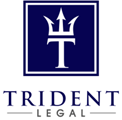Tax Elections and Default Classifications for Eligible Entities
There are three possible federal tax classifications for U.S. business entities:
- Disregarded Entity;
- Corporation; or
- Partnership
Depending on the legal structure of your business you may have an option to elect your tax classification. A business entity that is not necessarily classified as a corporation under Reg, 301.7701-2(b) can elect its classification for federal tax purposes.
Eligible Entities
Entities that are normally eligible include:
- Limited liability companies (LLCs);
- Limited liability partnerships (LLPs);
- Limited liability limited partnerships (LLLPs);
- Limited Partnerships (LPs); and
- General Partnerships (GPs).
Ineligible Entities
Entities that are typically ineligible include:
- Corporations;
- Insurance companies and banks;
- Most publicly traded partnerships;
- Foreign entities listed in the regulations;
- Exempt organizations and government entities; and
- Specialized forms such as mutual funds and real estate investment trusts.
Election or Default
The rules provide that for an eligible entity with only a single owner, the business may elect to be classified as an association taxable as a corporation, or default and be classified as a disregarded entity (Schedule C). For an eligible entity with at least two owners, the business may elect to be classified as an association taxable as a corporation, or default and be classified as a partnership (Form 1065, Schedule K-1).
Timing
An eligible entity must file its election within 75 days, or more specifically for a new business, on or before the 15th day of the third month following the corporation’s activation date, which is the earliest date that the corporation has shareholders, acquires assets, or begins conducting business (there are also limited exceptions for late elections), or it will fall under the default classification.
S Corporation
Additionally, an entity eligible to make a corporate election, if qualified, may make an S corp election. To qualify for S corporation status, the corporation must meet the following requirements:
- Be a domestic corporation;
- Have only allowable shareholders;
- May be individuals, certain trusts, and estates and
- May not be partnerships, corporations or non-resident alien shareholders
- Have no more than 100 shareholders;
- Have only one class of stock; and
- Not be an ineligible corporation (i.e. certain financial institutions, insurance companies, and domestic international sales corporations).
LLCs taxed as an S Corp
A limited liability company (LLC) is business structure formed by state statute. Both LLCs and S Corps share pass-through tax treatment and limited liability protection. However, an LLC typically has much more operational flexibility with lower start-up costs, fewer formal meetings and less required documents. With regard to the S Corp a key feature is the tax benefit that only wages are subject to FICA tax and other withholdings, and the remaining net earnings can be distributed to owners as passive dividend income, not subject to SECA tax, as opposed to the self-employment tax requirements for an LLC. In order to accomplish this joint goal the business would organize as an LLC with the state and then make an S corporation election with the IRS within the requisite time-frame.
IT IS HIGHLY RECOMMENDED THAT YOU CONSULT WITH COUNSEL AND / OR YOUR TAX ADVISOR PRIOR TO MAKING ANY TAX ELECTIONS AS THEY MAY HAVE SIGNIFICANT CONSEQUENCES AND THERE ARE NUMEROUS CONSIDERATIONS TO BE WEIGHED.
This content is for general educational purposes only and does not to provide any specific legal advice. By using this Site you understand that there is no attorney-client relationship between you and Trident Legal. This information should not be used as a substitute for competent legal advice from a licensed professional attorney in your state.
